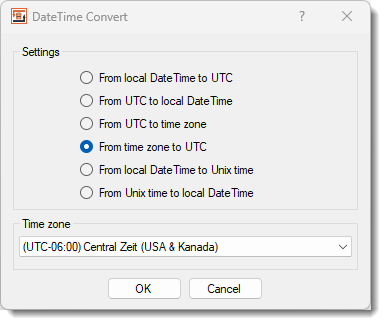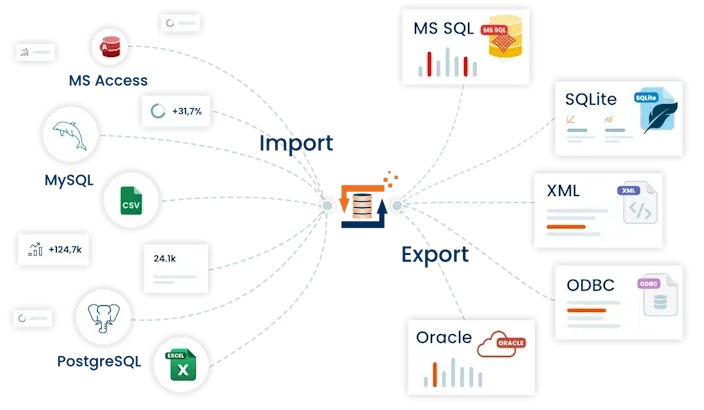DateTime Convert Heater – transforms date and time information
 Date and time information is often required in alternative formats or time zones. For example, obtaining the local date and time to or from UTC (Universal Time Coordinated) or from a time value expressed in Unix (Linux) format, which is a count of the seconds elapsed since Jan 1, 1970. The DateTime Convert Heater can perform such conversions. Note that local time always refers to the current time zone set for the system being used. It is also possible to add two of these heaters in series. For example, to convert first from UTC to local DateTime and then from local DateTime to Unix time.
Date and time information is often required in alternative formats or time zones. For example, obtaining the local date and time to or from UTC (Universal Time Coordinated) or from a time value expressed in Unix (Linux) format, which is a count of the seconds elapsed since Jan 1, 1970. The DateTime Convert Heater can perform such conversions. Note that local time always refers to the current time zone set for the system being used. It is also possible to add two of these heaters in series. For example, to convert first from UTC to local DateTime and then from local DateTime to Unix time.
 Heater DateTime Convert - Config
Heater DateTime Convert - Config
Settings
From local DateTime to UTC: Converts the incoming local date/time information to Universal Time Coordinated (UTC).
From UTC to local DateTime: As above but in the opposite direction.
From UTC to time zone: Converts an incoming UTC date and time specification to the time zone selected below.
From time zone to UTC: As above but in the opposite direction.
From local DateTime to Unix time: Converts a local date and time specification into Unix (Linux) time. The return value here is the seconds that elapsed since Jan 1, 1970 until the date and time specified. The returned value is FlowHeater data type INT (integer).
From Unix time to local DateTime: As above but in the opposite direction. The returned value is FlowHeater data type DATETIME.
Time Zone
Here you select the time zone you want to convert from or to. This option is only available when you select either “From UTC to time zone" or “From time zone to UTC" in the settings above.
Please also refer to the general information on the use of Heaters (functions)

